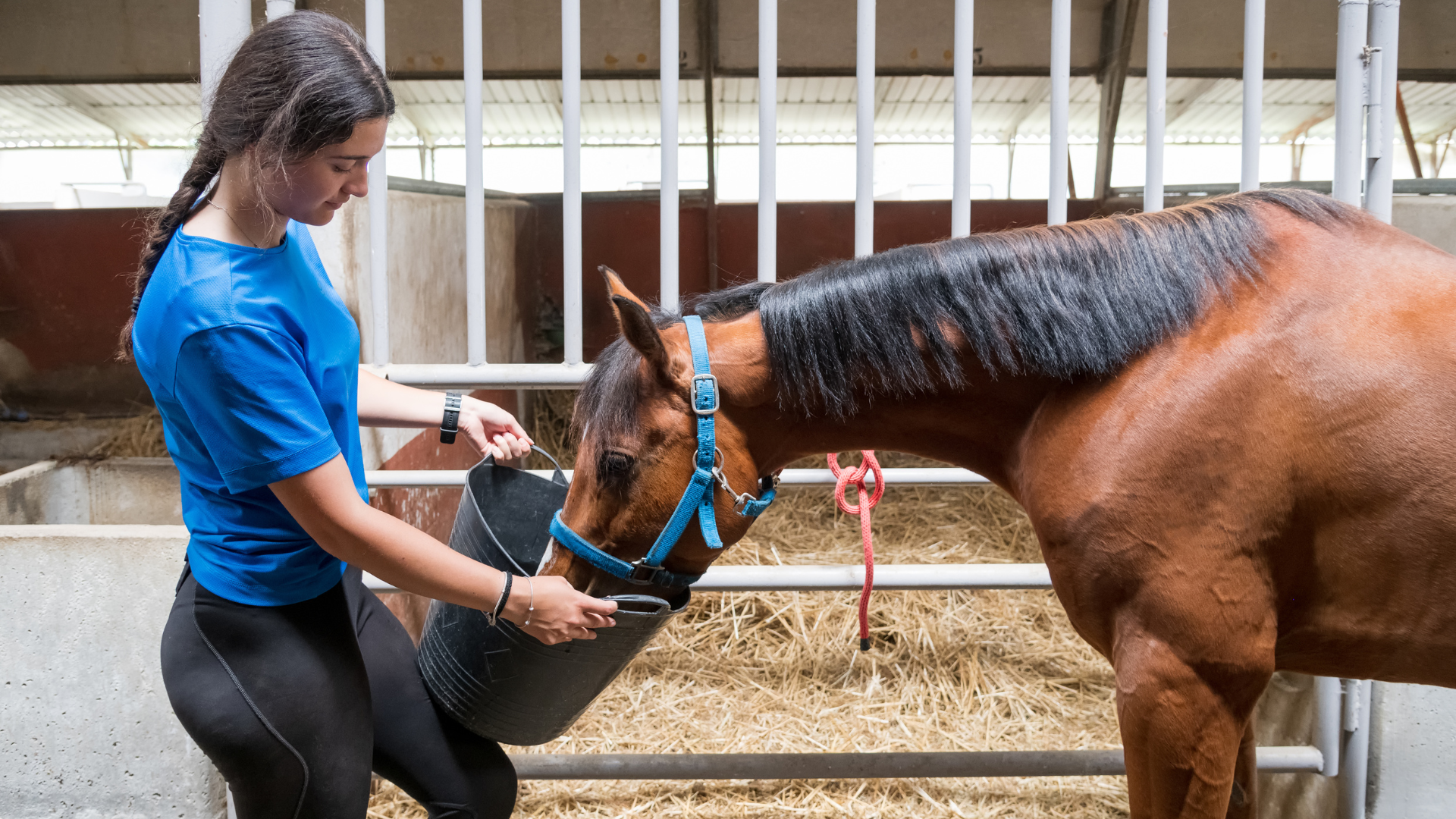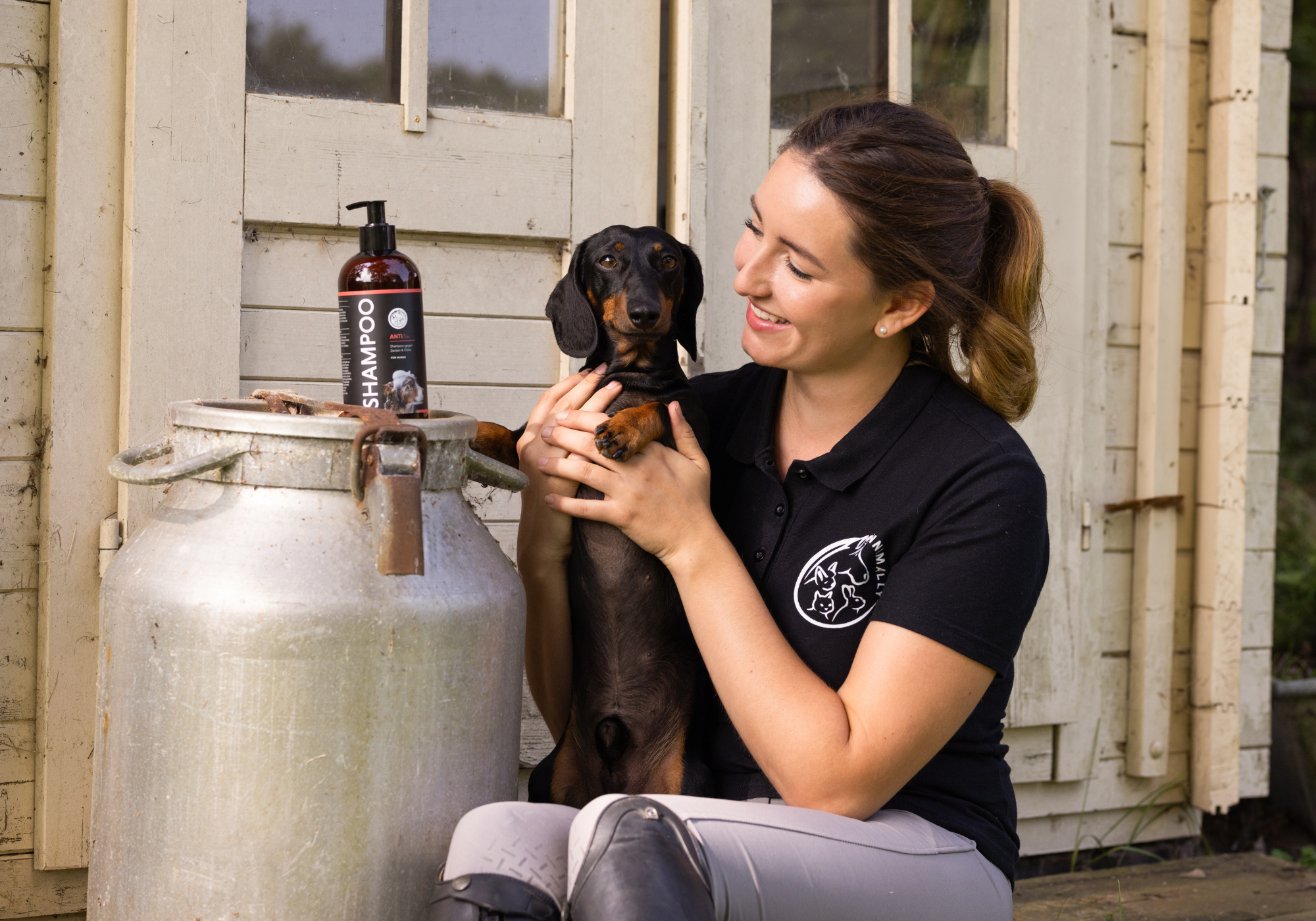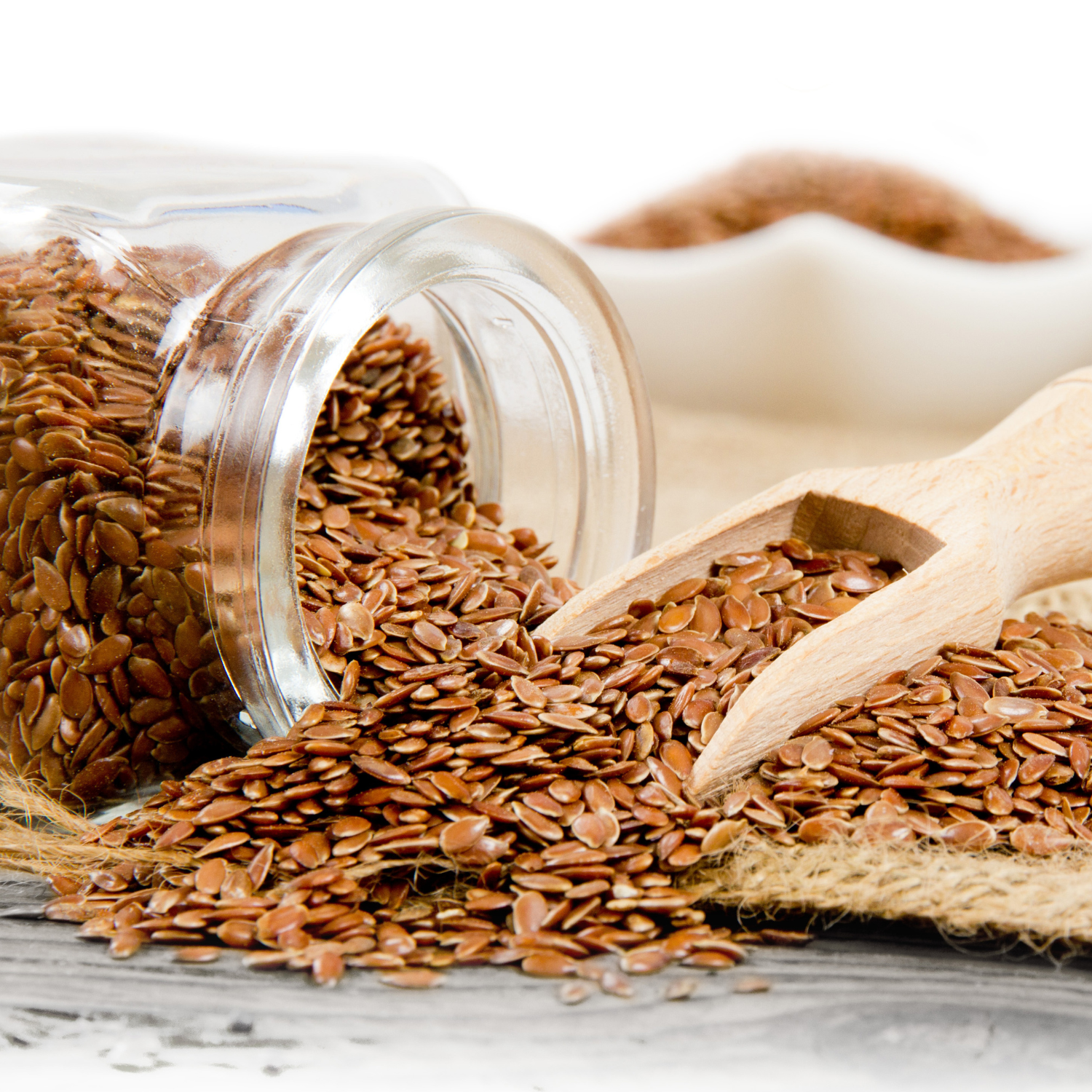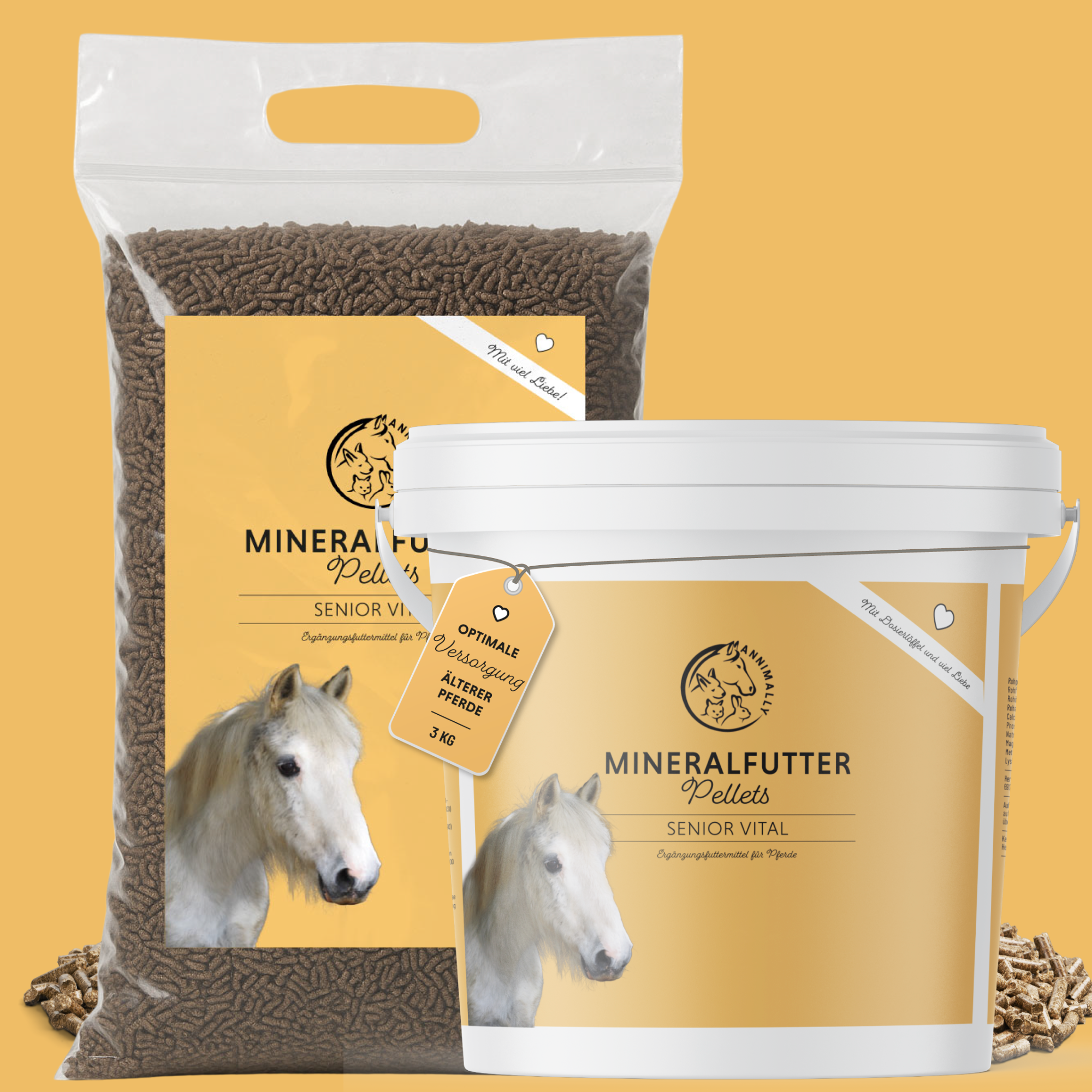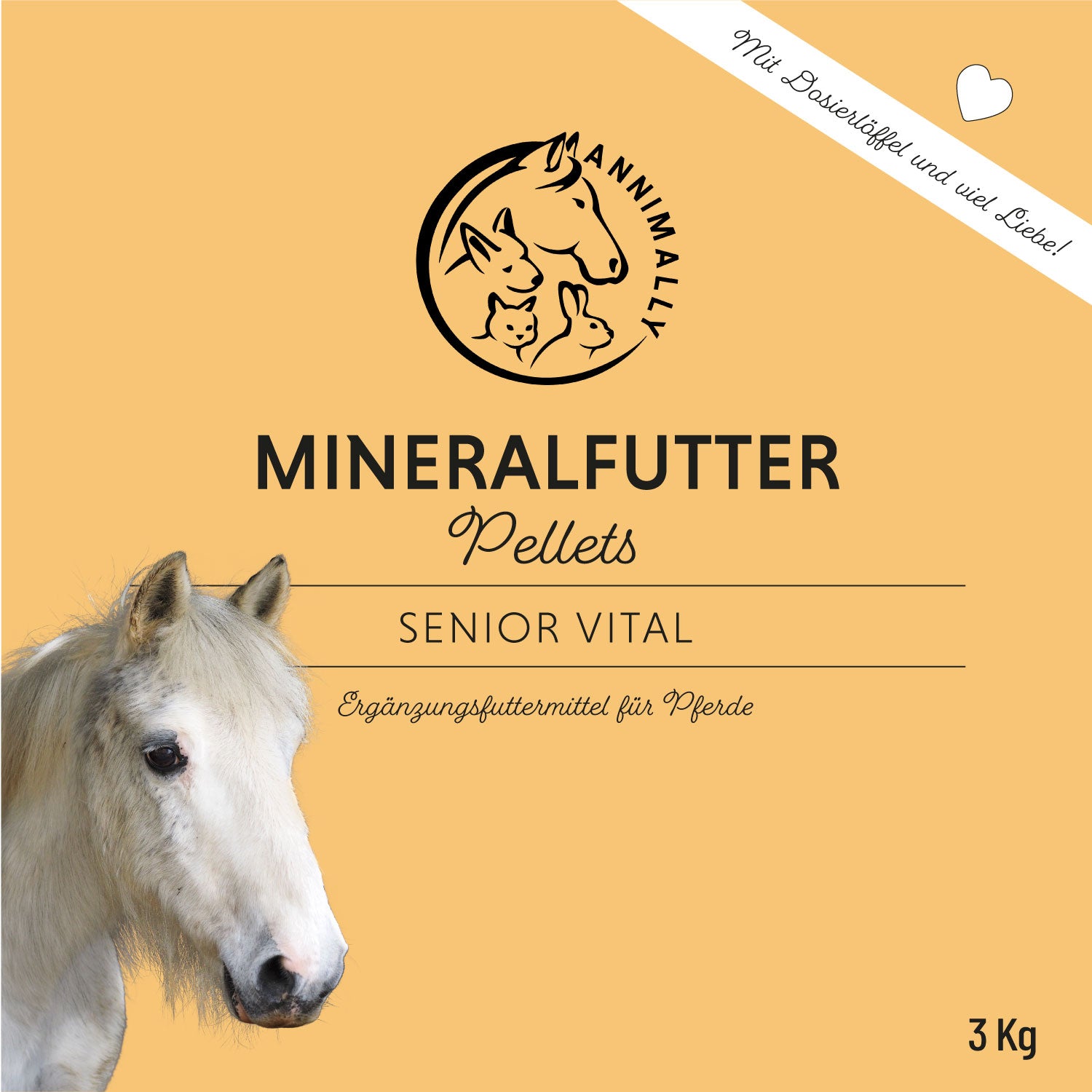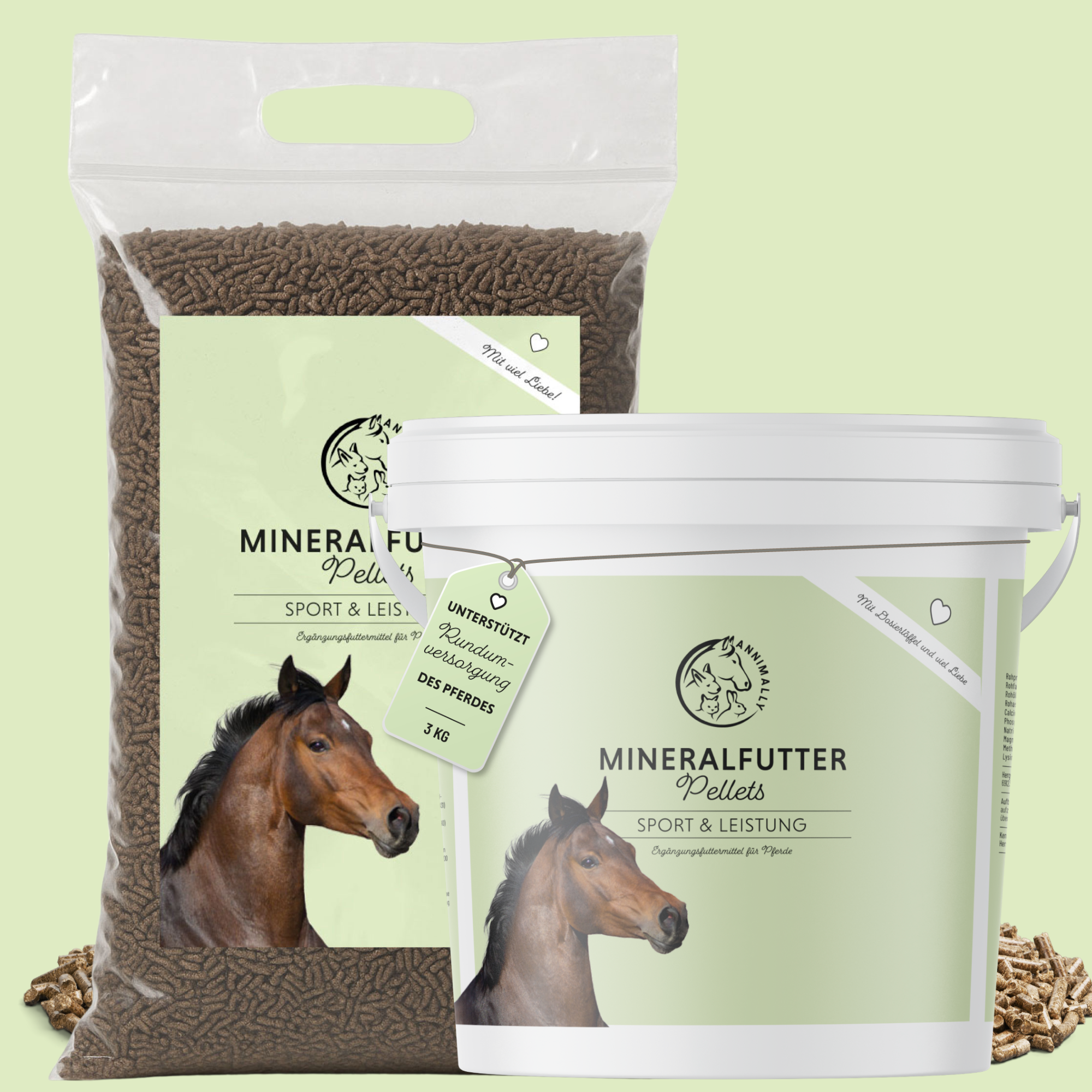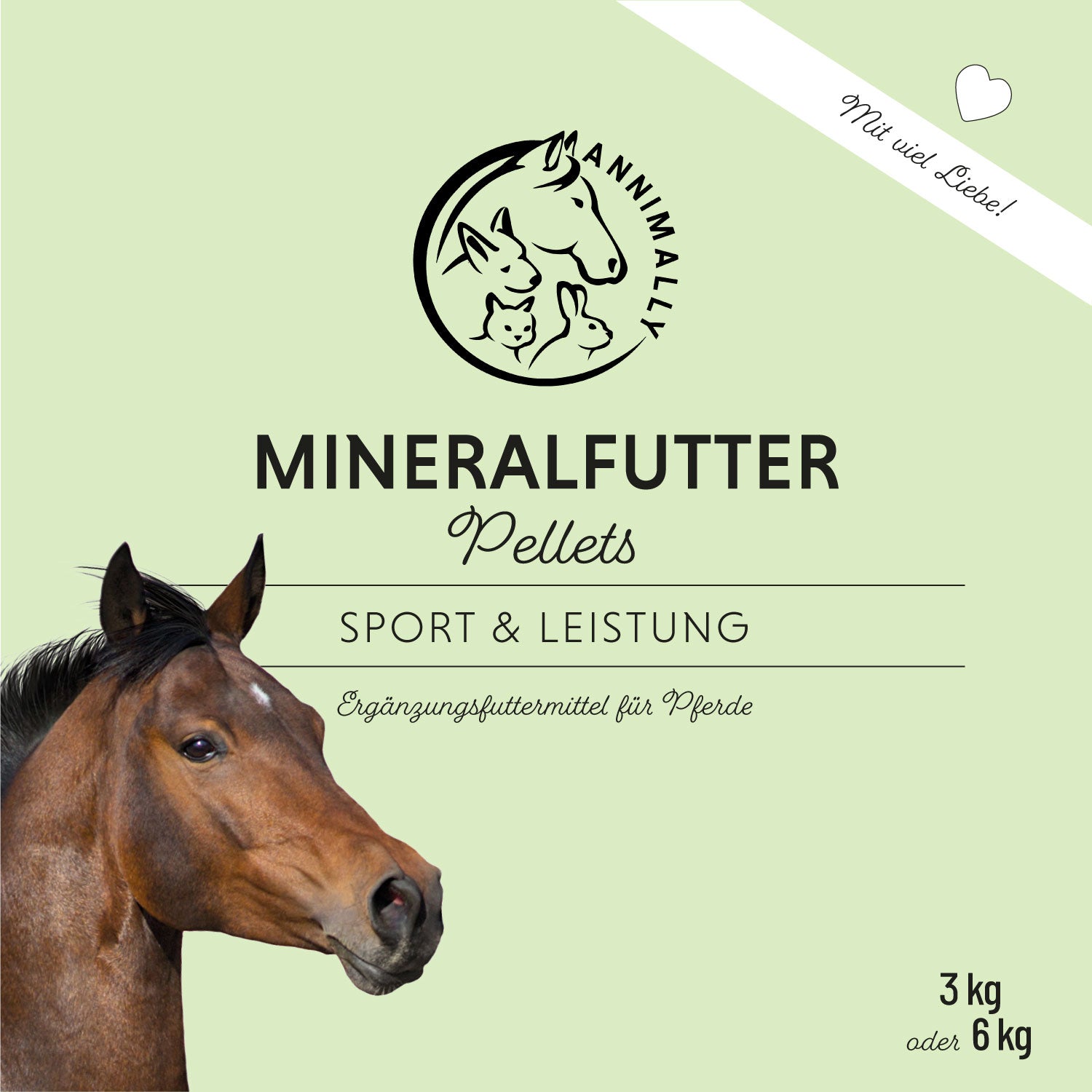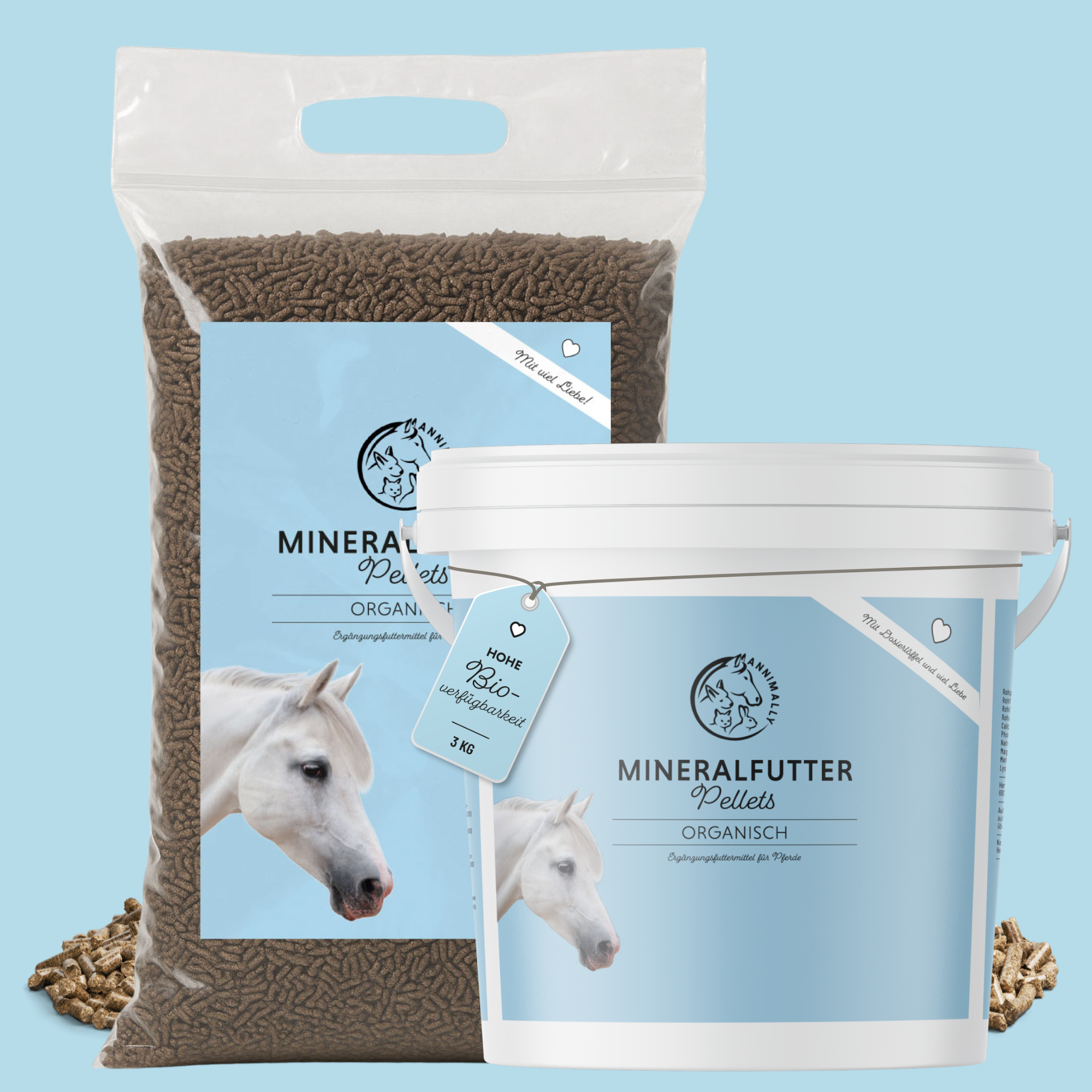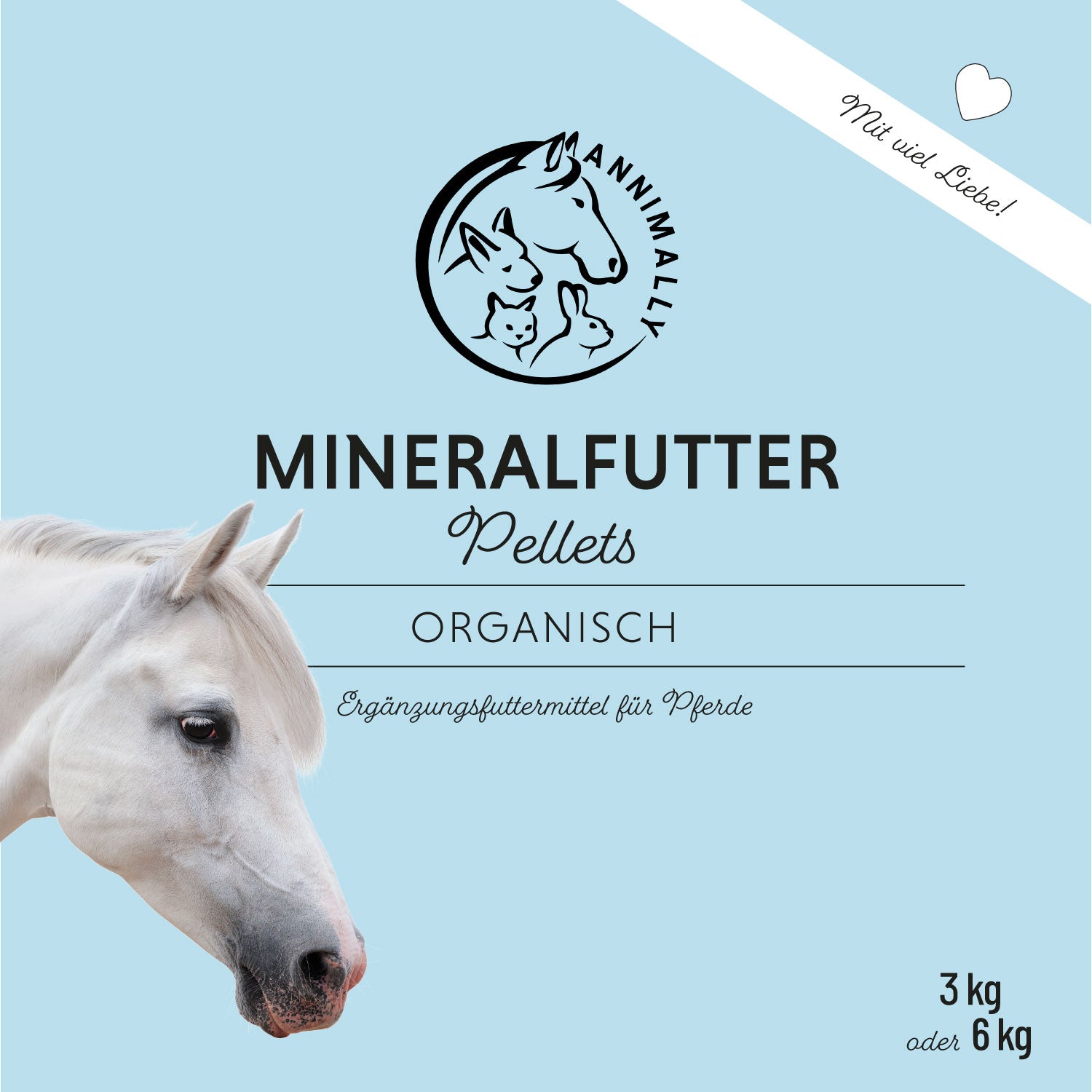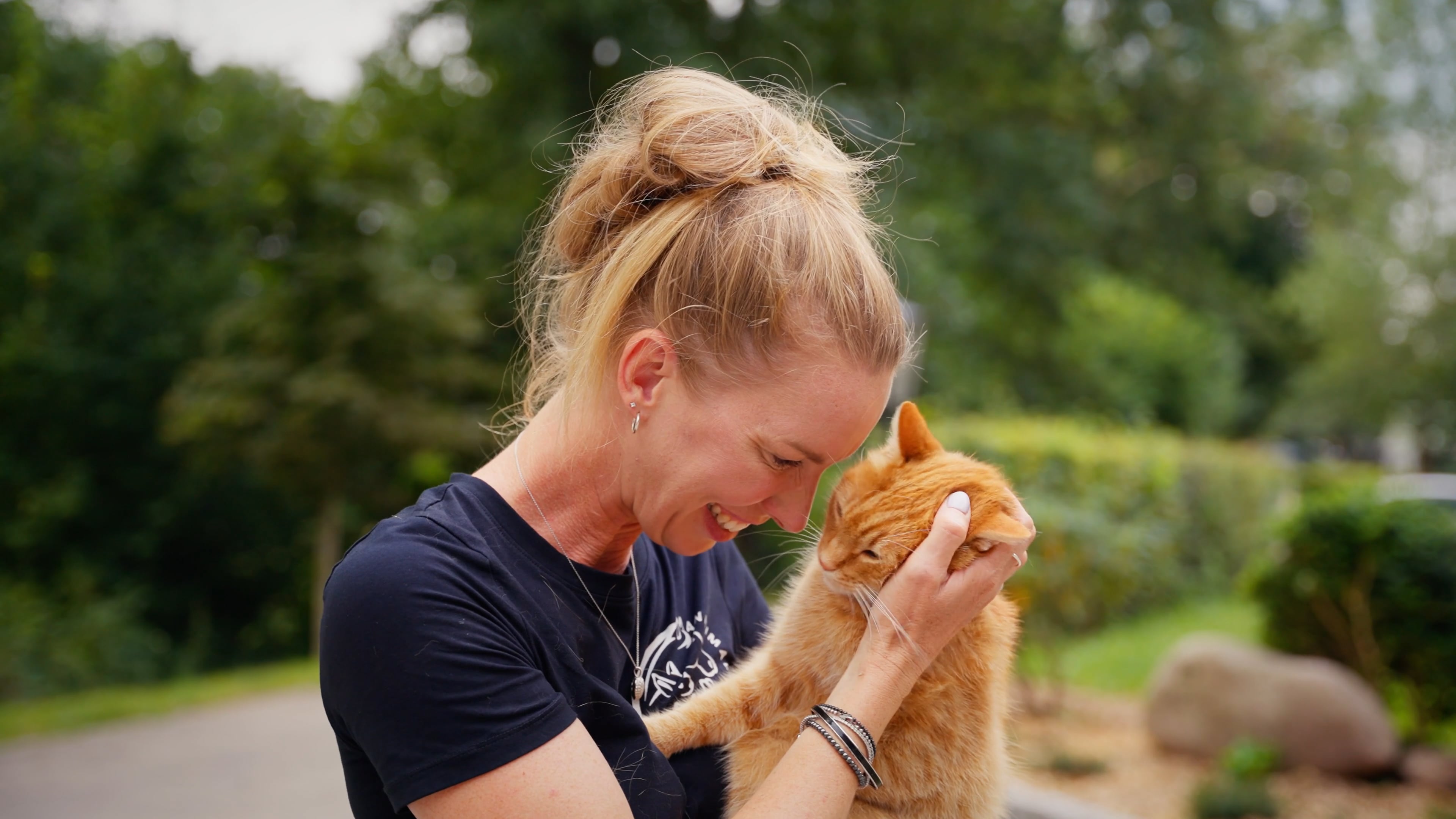Flaxseed for horses: Natural support for digestion, coat and health
Flaxseed is a popular feed supplement for horses that offers numerous health benefits. From improved digestion to a shiny coat, the plant's small seeds Linum usitatissimum contain valuable ingredients such as omega-3 fatty acids, mucilage and vitamin E.
But how should you feed flaxseed to your horse? What dosage forms are available, and what are the true effects of flaxseed?
In this article, you will learn everything you need to know about feeding linseed to horses.
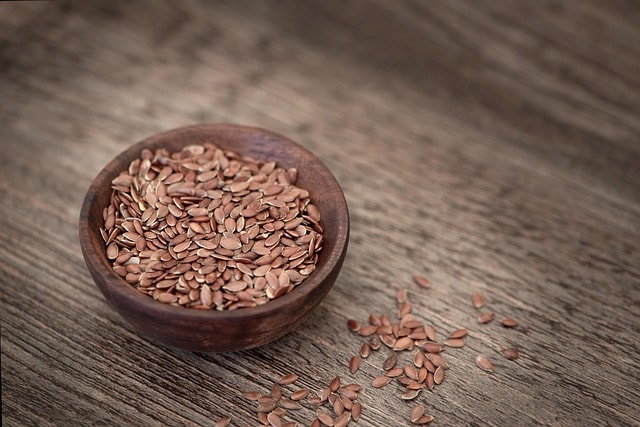
Why are flax seeds so valuable for horses?
Flaxseeds are a true superfood for horses. They contain numerous nutrients that can positively influence your horse's health:
-
Omega-3 fatty acids: These essential fatty acids support skin and coat health and have an anti-inflammatory effect.
-
Mucilages: They protect the stomach lining and can relieve digestive problems.
-
Protein: High-quality plant protein promotes muscle building and regeneration.
-
Vitamin E & Selenium: These antioxidants support the immune system and prevent deficiencies.
-
Pantothenic acid & other vitamins: They are important for energy metabolism and skin health.
Feeding linseed can therefore be a useful supplement in many areas – whether your horse has stomach problems, is shedding its coat, or simply needs an extra portion of nutrients.
Flaxseed and digestion: support for the stomach and intestines
Many horses suffer from digestive problems, whether due to stress, improper feeding, or sensitive stomachs. The mucilage contained in flaxseed has a soothing effect on the stomach and intestines. It forms a protective layer on the stomach lining and helps relieve gastric irritation. This creates a natural mucus that supports digestion and can provide relief for the horse.
Flaxseed can be a valuable aid, especially for horses with sensitive stomachs or stomach ulcers. Boiling the seeds creates a slimy consistency that acts as a natural protective barrier for the digestive tract.
Flaxseed for your horse's intestinal health
The intestines also benefit from feeding flaxseed. The fiber promotes healthy intestinal flora and improves stool consistency. Furthermore, the omega-3 fatty acids it contains have an anti-inflammatory effect, which can be particularly beneficial for horses with intestinal problems.
Flaxseed for shiny coat and healthy skin
A shiny, thick coat is a sign of your horse's health. Omega-3 fatty acids and vitamin E in flaxseed help support coat growth and strengthen the skin barrier. Adding flaxseed can provide optimal support, especially during the shedding period.
Flaxseed or linseed oil?
An alternative to whole or ground flaxseed is linseed oil. It contains a high proportion of omega-3 fatty acids, but lacks the valuable mucilage. If you specifically want to support your digestion, whole or ground flaxseed is more suitable.
Feeding flaxseed correctly: dosage forms and feeding recommendations
Flaxseeds are available in different forms:
-
Whole flax seeds: These have a long shelf life, but must either be broken open or cooked to release the ingredients.
-
Crushed flax seeds: They are easier to digest but should be consumed quickly as they can become rancid.
-
Linseed oil: A practical alternative if you want to use mainly omega-3 fatty acids.
-
Ready-made flaxseed products: Supplementary feed such as Hippolyt Linustar contain linseed in an optimized form.
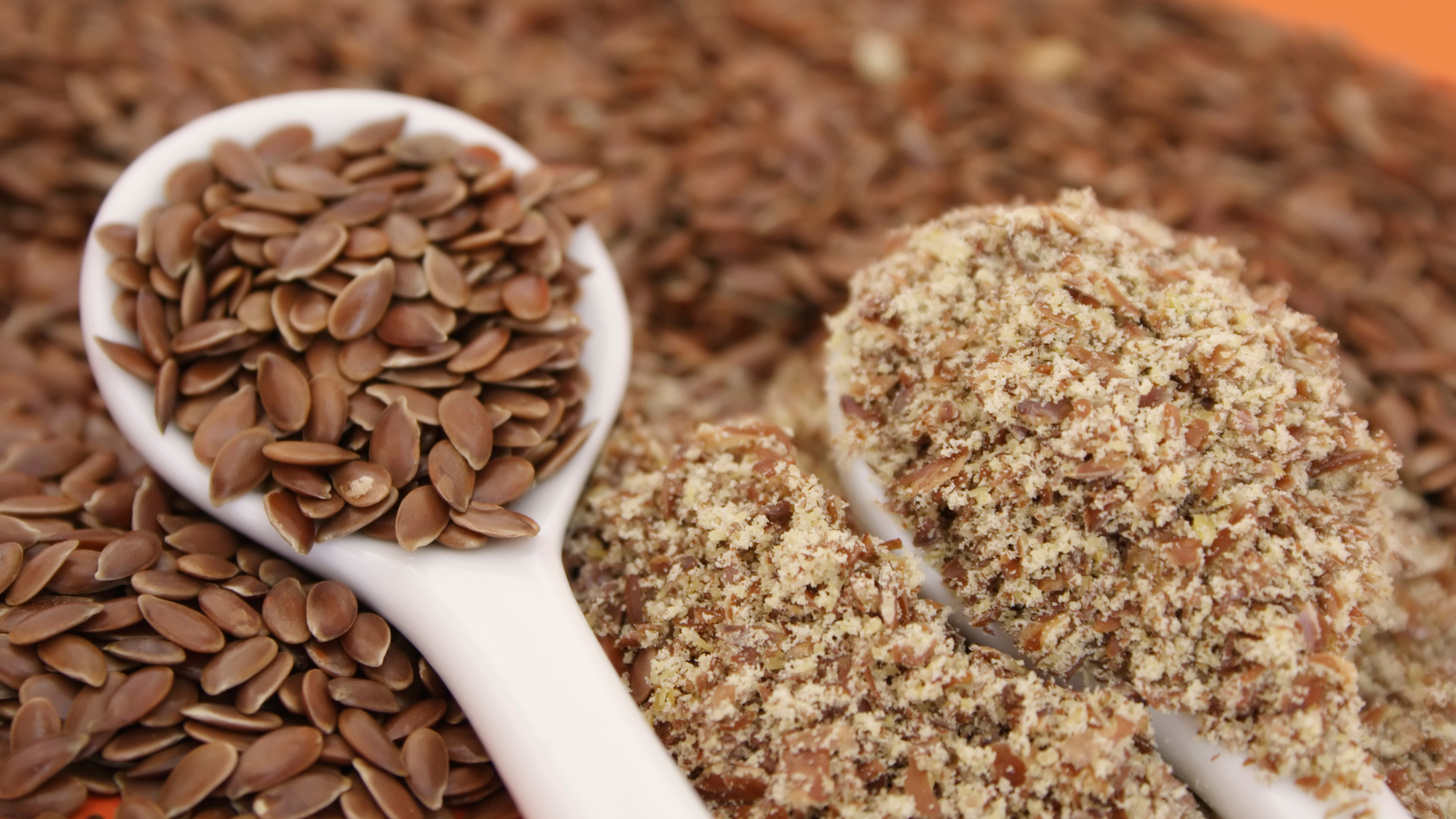
Boil or feed raw?
A common question is whether flaxseed needs to be boiled for horses. It used to be recommended to always boil flaxseed to destroy the hydrogen cyanide it contains. However, modern findings show that the amounts of hydrogen cyanide in commercially available flaxseed are so low that feeding it raw in moderate amounts is safe.
Nevertheless, boiling can have advantages:
✔️ It releases the mucilage that protects the gastrointestinal tract.
✔️ It improves the digestibility of nutrients.
How much flaxseed should a horse get?
The amount depends on the dosage form and your horse's individual needs. A general recommendation is:
-
Whole or crushed flax seeds: 50–100 g per day for a large horse
-
Linseed oil: 20–50 ml per day
-
Ready-made supplementary feed: Observe manufacturer's instructions
When feeding over a longer period of time, it is recommended to take regular breaks to avoid one-sided feeding.
Flaxseed as a natural energy source
In addition to its health benefits, flaxseed is also a good source of energy. Due to its high fat content, it provides your horse with additional energy without placing unnecessary strain on its metabolism. This can be particularly beneficial for sport horses or older animals.
What should you pay attention to when buying?
If you want to buy linseed as a feed supplement for your horse, pay attention to the following points:
-
High quality: Organic or food-grade flaxseed is free from harmful substances.
-
Freshness: Ground flaxseeds should be fresh as they spoil quickly.
-
Good delivery time: Make sure your delivery time is quick so that the goods are not stored for too long.
Flaxseed feeds are available in various forms—from pure granules to ready-made blends. Consider which option is best for you and your horse.
Conclusion: Linseed as a valuable supplement in horse feeding
Flaxseed is a versatile feed supplement with numerous health benefits for your horse. It supports digestion, promotes a shiny coat, and provides valuable omega-3 fatty acids. Whether raw, cooked, or in the form of linseed oil – there are various ways to incorporate flaxseed into your horse's diet.
If you want to do something good for your horse, flaxseed can be a useful supplement. Make sure you administer it in the right form and quantity to achieve the best possible effect.
